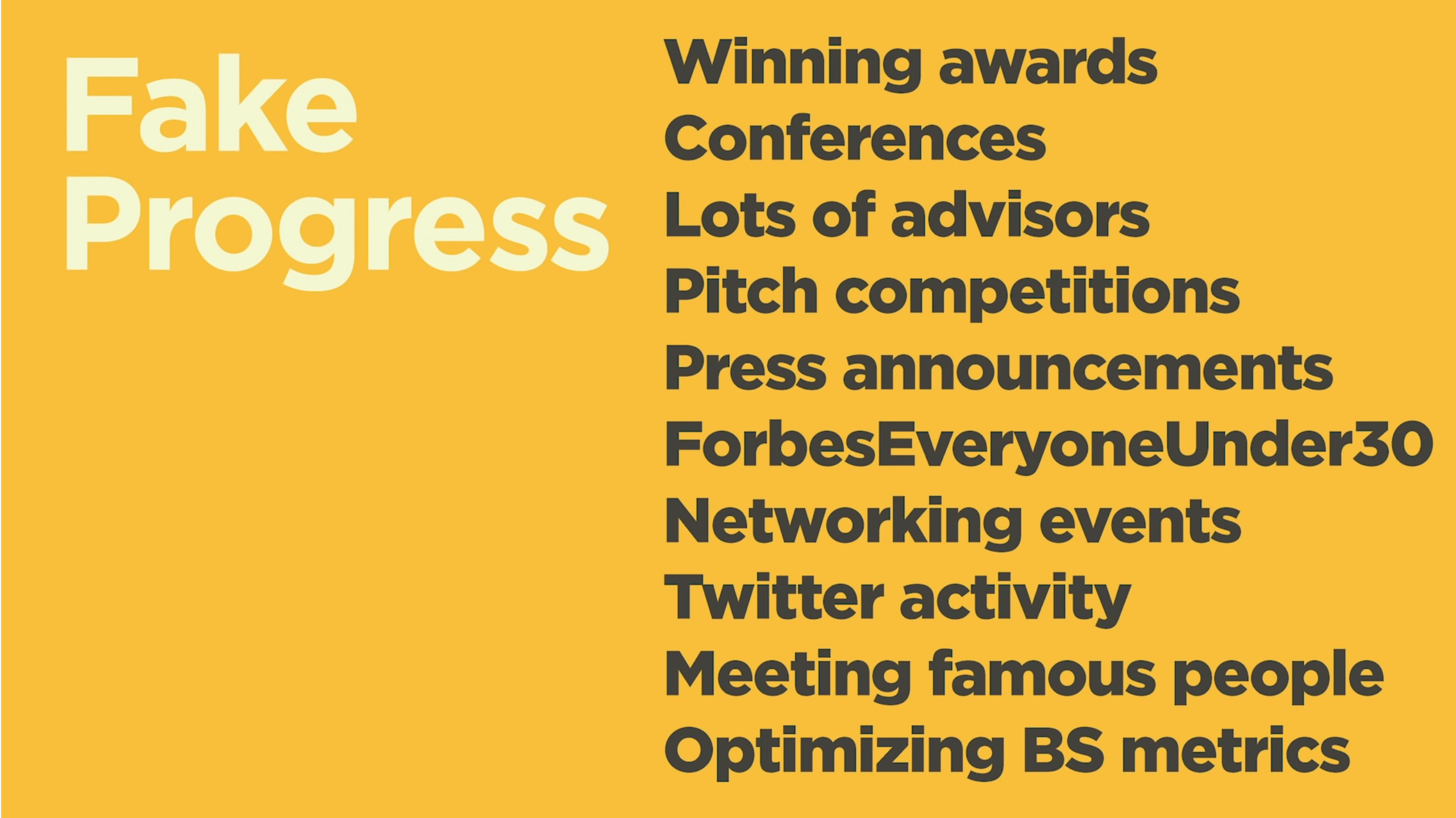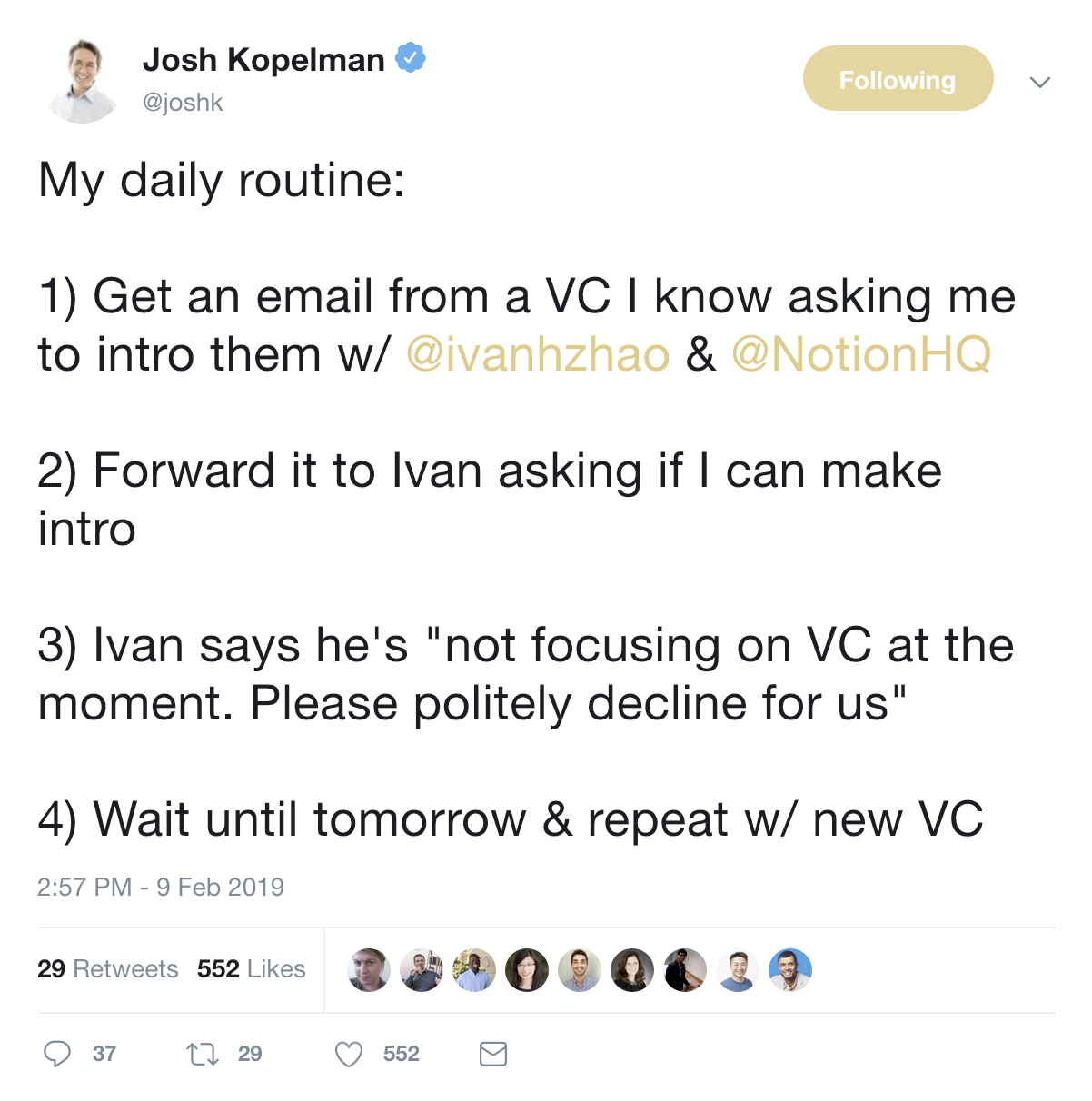May 09, 2020
The Quiet Startup
Justin Liwag
The best and most notable startups are the ones that are powered by a systematic focus. They are highly disciplined and are often the ones who create the most useful products and services. They are the quiet startup.
The quiet startup is a special forces unit. They are systematic in preparation and surgical in execution. After completing a task or mission, they move onto the next one without the need for recognition or praise. They simply get things done.
The quiet startup is not an invisible startup. They still interact with the world around them and the customers that they are trying to solve problems for. They are not isolated within their own world, but instead, try to use their limited resources to their maximum effectiveness. These constraints are what fuel innovation and progress. The people who run it have no ambiguity of what to do or how to do it.
To be the opposite of this is to be an amateur, a hobbyist. Someone who is just passing through. They are easily spotted. They frequently attend networking events, speak on panels, and take coffee meetings with wanton abandon. You almost get the sense that they multiplied themselves and are everywhere at once. The problem is that they are not.
These are the loud startups.
Loud startups are the ones that fail all the time. They will be the majority of the startups you interact with. Some make it, but many don’t. They don’t burst into flames in front of your eyes, but instead, quietly disappear into the night. If you were a startup pathologist studying the cause of death, you would find a similar pattern. They were never a startup to begin with. Loud startups generate a lot of noise and heat but fail to capture and hold onto any it.
A startup is an entity that is built to solve a problem with very few resources, in the quickest amount of time available, and iterate upon the solution regularly. This requires intense and methodical focus and to actually work on your product or service. This simple act of sitting down and working on your product is hard. It sucks. It’s boring. It is what makes a startup successful.
The people behind successful ventures are the ones who are manically productive and, most importantly, protective of their time. They utilize themselves in the most efficient way that their company needs. They serve one master. They do it well, and they do it quietly.
The quiet professional
All successful founders are different. They are introverted or extroverted. Larger than life or intensely contemplative. They are fundamentally different on many levels. I believe that the one thing that ties them together is that, at their core, they are all quiet professionals.
A quiet professional is someone who does his or her job, does it well, and moves on. This mantra is an internalized ideology. They focus on internal growth and progress rather than on external expectations. Their only goal is to focus on the task and move onto the next ones. Accolades are nice to have but are not the goal. Recognition is appreciated but never the focus.
This idea is not tied to any particular field or profession. To meet with a quiet professional is to meet with a craftsman or craftswomen. You can sense it. They have a certain solace about them and a sense of inner fortitude. They are far from perfect, but they know what the important questions are and are working on answering them.

Ernest Hemingway was a unique example of the quiet professional. While maintaining the reputation for legendary levels of drinking, daring adventures, and delinquent behavior, Hemingway kept a demanding writing routine and is considered one of the greatest writers ever to put pen to paper.
This routine Hemingway created for himself was carried out every day and done with an uncompromising attitude, regardless of motivation or energy. Starting his day at 6:00 am, Hemingway would immediately get to work. He would first re-read everything that he wrote up until that point, then unscrupulously edit and finely tune his already notoriously lean writing further. After this, Hemingway would then begin writing to write between 600 - 1,000 words per day. To be mindful of what he wrote, Hemingway would famously add 2-3 spaces between each word. This would slow his pace and focus his attention after each word and syllable. These sessions of intense work spanned 6—7 hours.
Hemingway would then relax with a drink and lightly read newspapers and magazines, which he said was the only activity his “emptied” mind could handle. He would regain his energy by the late afternoon and would briefly socialize with friends or family. Towards the end of the day, Hemingway would retreat into himself and begin thinking about and preparing for the next day ahead.
This was what every day looked like for Hemingway.
How many people do you know that maintain something similar to this? Likely, it would only be a handful. And they are probably the most successful people you know.
David Brooks famously said that “Great creative minds think like an artist but work like accountants.” Hemingway understood and embraced the value of this routine. Founders should approach their work with the same reverence. To embrace this is to understand that there is an agreement in that creating something worthwhile is a compounding process. Small daily steps lead to significant gains over time.
Starting something new is inherently tricky, no matter what it is. The simple act of wanting to do something new isn’t enough to propel you forward. A quiet professional’s mindset is to put the task ahead of yourself and dedicate yourself to it.
Ego is the enemy
To handle yourself as a quiet professional means sorting out real vs. fake progress. Real progress makes tangible and measurable effects on the company’s growth and customer satisfaction. Fake progress makes a tangible and measurable effect on the ego of the founder.
In a lecture by Adora Cheung, a Y Combinator Partner, she discusses how to spend your time effectively. The slide that stood out to me the most listed examples of what fake progress looks like.

Fake progress is optimized for the short term, while real progress is targeted towards a long term goal. Winning a pitch competition and gaining $10,000 in prize money is fantastic, but if your product is terrible, your startup will fail regardless.
This advice is hard to abide by because very few people follow it. You will inevitably be bombarded by event invites, coffee chats, social media, investor meetings, speaking gigs, and a million other things. Saying no to these exciting events is hard because it feels good. It feels like progress. It is anything but.
To be a quiet startup is to resist fake progress with a zealous determination. This is the siren’s call, pulling you towards the rocks hidden beneath the water.
To make real progress means:
- Sitting down and writing.
- Improving your landing page conversion rates.
- Creating a better marketing funnel for warm leads.
You must move the needle.
Sam Altman, former president of Y Combinator and current CEO of OpenAI, puts it best when he stated, “The most successful founders simply know when to say no. This is almost always.”
The Power of Leverage
Five years ago, Ivan Zhao’s company was on the brink of failure. The technology Zhao built his company on was failing, and the initial angel investment that he had received from friends and family were all but gone. The product wasn’t working.
To turn around the company, Zhao and his co-founder, Simon Last, left San Francisco and moved to Kyoto. It was a significantly cheaper place and would buy them time. A counter-intuitive move even today. Zhao said, “Neither of us spoke Japanese, and nobody there spoke English, so all we did was code in our underwear all day.” For up to 18+ hours a day, Zhao and Last spent all their time redesigning everything from the ground up.
This was the start of Notion. A workplace productivity startup whose tools help people organize and track their work. Notion has over one million users (myself included) and is one of the most sought after VC’s investments in San Francisco.
To look at Notion is to see a reflection of Zhao and Last. They operate without a board and devote all their time towards what makes Notion great, the product.
“You work on something long enough, you realize it’s not about you, it’s about people loving what you are building. If you keep doing that, the market will drag you where you should be.” — Ivan Zhao
Zhao and his company Notion have since moved back to San Francisco, but have not been influenced by anything but the beat of their own drum. This made Notion not only famous for their software but their indifference for VC meetings and distractions. They would politely decline all inquiries and continue working on the roadmap that they thought best suited them.

This fever pitch eventually reached a tipping point. In addition to the multiple calls Zhao received every single day, it was reported that a VC ”dug up Notion’s office address and sent its founders cookie dough, dog treats and physical letters” to hopefully meet the founders or score a meeting. Zhao and Notion were being courted so aggressively that the company decided not to update its office location in its Google listing to try and stem the tide of cold-call in-person drop-ins.
The blueprint for how a startup operated was rewritten by them in their favor. They held all the cards. They maintained all the leverage.
This was made possible by narrowing their focus towards creating something that people wanted. In a category filled with hundreds of competitors and options, Zhao and the team at Notion built a product that people loved. It is certainly not without flaws and bugs, but it is undeniable that they have stood out from the rest. Their ardent focus on their user’s satisfaction, and employees well being over everything else has paid off dividends.
While being notoriously adverse to interviews and publicity, Zhao and the team at Notion are regularly seen talking to and getting feedback from users through Twitter, email, and even their subreddit. They sparingly use these platforms for promotion but rather as a two-way conversation. They are a frictionless way to get feedback from their users, tell them about new features that they are releasing, and keep an eye on what is and isn’t working.
As a demonstration of how much leverage they have generated for themselves, Notion recently closed another round of funding. $50 million at a $2 billion valuation. They picked out who would get the opportunity to invest and dictated the terms to best suit them and their needs. This was all accomplished while the COVID-19 pandemic ground VC’s funding to a halt.
It took two days after deciding to raise their next round of funding to secure the term sheet.
Conclusion
To be a quiet startup is not a recipe for success. Every company has a different story—a unique pathway. The moniker of being a quiet startup is not meant to be prescriptive. I think it is best used as a heuristic to help frame the way you think about your startup, venture, or project. And maybe as a reminder to slow down and think about how to be just a bit more quiet in the face of all the noise around you.
Enjoy the Article?
Feel free to check out what I am reading right now or visit my public External Brain. This is where I store useful or interesting links that I read or come across.